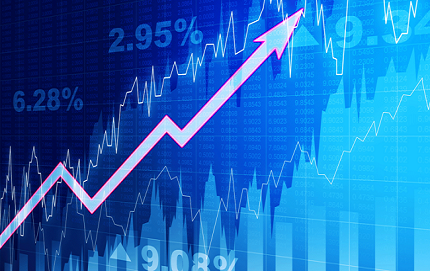What data about you is most important?
The data that identity thieves are after – social security, credit card, and bank account numbers – is important, as well as more basic data which is being collected by companies whose devices you use every day.
Geoffrey Fowler of The Washington Post recently reported what happens on smartphones doesn’t stay on smartphones, despite advertisements suggesting otherwise. He wrote:1
“Even though the screen is off and I’m snoring, apps are beaming out lots of information about me to companies I’ve never heard of…On a recent Monday night, a dozen marketing companies, research firms, and other personal data guzzlers got reports from my [smartphone].”
And, they used his wireless service to do it!
Over the course of a month, one expert estimated trackers would have sent 1.5 gigabytes of data – including Fowler’s email address, phone number, IP address, and location, among other things – from his phone to various companies.2
Here’s some more bad news: Your credit cards may be bigger gossips than you imagined.
When Fowler attempted to track data collected by credit card companies, it was akin to talking with teenagers about their plans for the evening. His personal credit card data was going out, but no one could say where it was going, why it was going there, or what would happen to it.2
The data collected from devices and credit card purchases is aggregated and commonly known as ‘Big Data.’ In some cases, data is anonymous. In others, it is used to learn more about a specific individual. Data also is collected through social media.3
Big Data is stored in computer databases and analyzed to “…increase the speed at which products get to market, to reduce the amount of time and resources required to gain market adoption, target audiences, and to ensure that customers remain satisfied.”3
In other words, Big Data is really valuable. Some researchers have explored whether individuals should own and control personal data. That way, you would have the right to decide whether to sell it or keep it private.4
The Council on Foreign Relations reported most western nations have laws in place to protect citizens from having data collected and used without their knowledge. The United States is an exception. It “lacks a single, comprehensive federal law that regulates the collection and use of personal information.”5
Until laws change, there are apps available that can help you block data collection – and they promise not to collect your data.6
Most Popular Financial Stories
Valentine’s Day Message
How Are Your Investments Doing Lately? Receive A Free, No-Obligation 2nd Opinion On Your Investment Portfolio > December 9, 2020 Our Mission Is To Create And Preserve...
SPECIAL EDITION MARKET UPDATE
How Long Can This Last?Performance NumbersOur aggressive growth model is once again outpacing the S&P 500 Index. We’re up 8.48% year-to-date, while the...
When the Year Is New
Time to Take Stock Bye-bye 2020. For everything not financial, we don’t hate to see you go. Pandemics. Riots. Elections. Safe Distancing. Masks. Lockdowns. The parade of...
Special Edition – Year End Tax Matters
Making a List and Checking It TwiceAs one of the strangest years ever thankfully draws to a close, it behooves us to take stock and see our situation as it now...
DOW 30K: Yellin’ for Yellen
The market likes President-Elect Joe Biden’s selection of Janet Yellen to serve as Treasury Secretary. Many Wall Streeters feared that Biden would appoint...
Thanksgiving
When we were young, Thanksgiving was simple. It was a day off from school, or from work. A day for watching football, or for eating as much turkey and pie as we could...
Sources:
1 https://www.washingtonpost.com/technology/2019/05/28/its-middle-night-do-you-know-who-your-iphone-is-talking/
2 https://www.washingtonpost.com/technology/2019/08/26/spy-your-wallet-credit-cards-have-privacy-problem/?wpisrc=nl_most&wpmm=1
3 https://www.investopedia.com/terms/b/big-data.asp
4 https://www.sciencedirect.com/science/article/pii/S0267364918300487
5 https://www.cfr.org/report/reforming-us-approach-data-protection
6 https://www.pcworld.com/article/3336494/disconnect-premium-vpn-review.html



